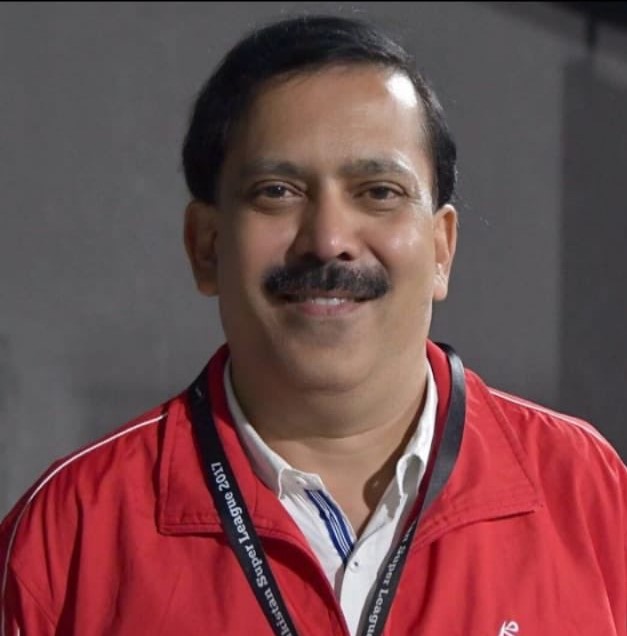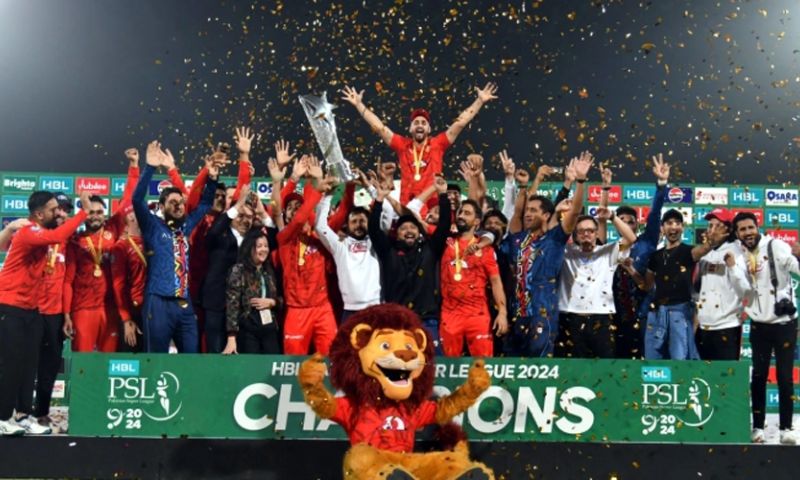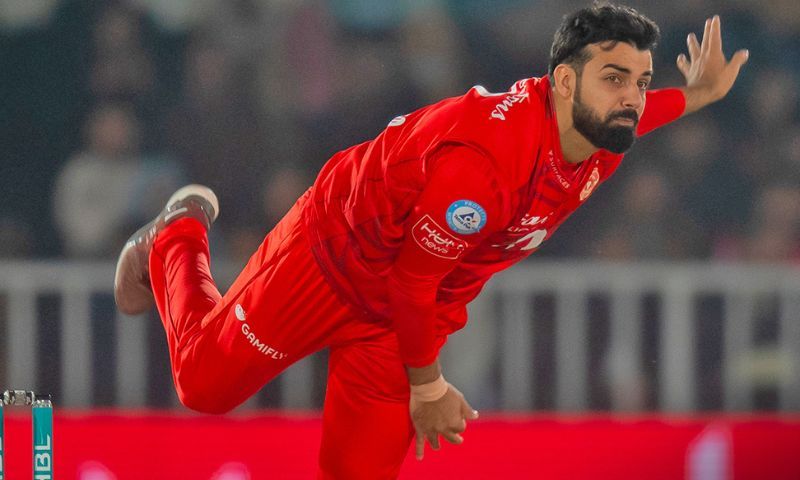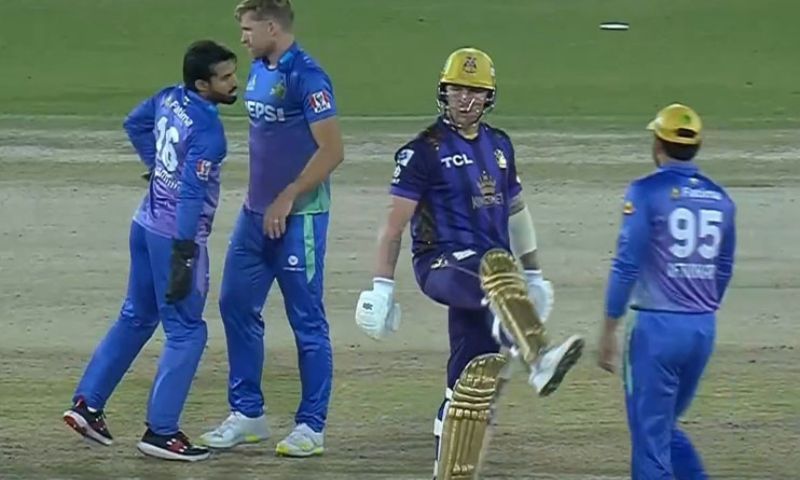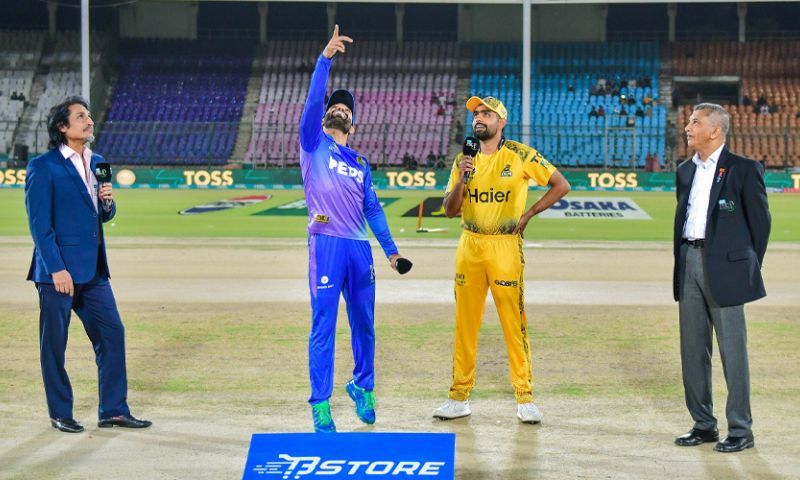The ninth edition of the HBL Pakistan Super League has left a lot to be desired as there were a number of factors that needed quick attention and adjustments to keep the league’s standing as world’s second best. There was a conspicuous absence of big players and the Karachi leg was marred by lack of crowds. To end the high-profile event on a weekday also left a sloppy impression.
The event ended on March 18 when the most jazzy side of the PSL 9 Islamabad United won a nail-biting, nerve-wracking and sensational final against Multan Sultans by two wickets. It was a de javu for Mohammad Rizwan side as they lost at the same stage to Lahore Qalandars in last year’s final by a solitary run. This makes Sultan an unlucky side as they have now lost three finals on the trot after winning the title in 2021.
Islamabad United peaked at the right time to clinch the trophy. After winning their first game they lost three on the trot, won two and lost one and after sneaking into the play-offs as third best team did not look back. They won their last five games and prevailed twice against Sultans to clinch their third title in nine years. They were the winners in the inaugural edition in 2016 and had an encore two years later.
But despite the minus points there were five last ball finishes that sparked a life in the ninth edition. It was a final to be remembered as there were ebbs and flows with both teams trying to take the driving seat. Imad Wasim’s 5-23 and Naseem’s 3-32 had destroyed the Sultans. But from 127-9 in the 18th over Sultans accumulated 32 in the last three overs, 31 off the last two. The man behind those runs was Iftikhar Ahmed who carted two sixes off Tymal Mills and a six plus two boundaries off Naseem Shah to get his team to 159-9, giving them a semblance of fight in the end. Islamabad too squandered a winning position as they slumped from 121-4 to 129-7. It was left to the experienced Imad Wasim to goad Naseem into a 30-run partnership as the target was reduced to eight off the last over. After seven coming off the first four balls, calamity struck with Naseem dismissed. It was left to Naseem’s younger brother Hunain to hit the winning runs, a risky boundary off a distraught Mohammad Ali.
Mohammad Rizwan, Multan Sultans captain, rightly pointed out that “If the match goes to the last ball, you can’t really point out any flaw.” Sultans impressed in yet another season and a fourth final in as many years speaks volume for their hard work, commitment and excellence.
This year too, the start to the tournament was uncertain. Zaka Ashraf, the incumbent head of the PCB management committee, stepped down barely a month before the start of the PSL. Just 12 days before the start of the event Mohsin Naqvi was elected as PCB chairman but the PSL management had been on track to hold the event without any break. The successful staging of the general election on February 8 also removed all doubts and the league kicked off in Lahore on February 17, with United upstaging the defending champions.
The two finalists of last year — Lahore Qalandars and Sultans — had contrasting fortunes this time. Sultans were dominant on their home ground in Multan, winning four of the five matches and only losing a close match to Peshawar Zalmi. Qalandars lost their first six matches, five at home in Lahore and the other in Multan while they failed to defend in four games. That was disappointing because Lahore had in reality the same pace bowling attack as Pakistan with Shaheen Shah Afridi, Zaman Khan and Haris Rauf. When they lost to Kings they also lost Rauf whose shoulder injury ruled him out of the remainder of the event. They also missed ace Afghan leg-spinner Rashid Khan who was recovering from a back surgery while dashing opener Fakhar Zaman was ruthlessly out of form with the bat.
Multan struck a deal with Quetta to get Iftikhar Ahmed while giving away Rilee Rossouw. One of the brightest inclusion in Sultans were the two bowling coaches Catherine Dalton and Alex Hartley. Both worked wisely and it showed in Sultan’s bowling which proved to be the strongest of the event. Leg-spinner Usama Mir finished with 24 wickets, Test player Mohammad Ali 19, now retired England seamer David Willey 16 and fast-rising pacer Abbas Afridi 13. Dashing batter Usman Khan, Pakistan-born but shifted to UAE, struck back-to-back centuries — the first in PSL history — plus a 96 to highlight the power batting of Sultans with 430 runs while Mohammad Rizwan was always in runs, finishing with 407. Rizwan’s captaincy was also the hallmark of Sultans’ progress as he motivated his players on end and employed wise tactics.
Like always, United had culled a strong squad from the draft. Their master-stroke was a swap deal with Quetta Gladiators, getting Naseem Shah in lieu of Abrar Ahmed and Waseem Junior. It could have been risky as the pacer was coming from a shoulder injury. Not only Naseem but his two brothers — Hunain and Obaid — were also drafted in to make the squad heavily loaded in pace bowling. United’s solid batting ran deep down and despite Alex Hales (10 matches, 148 runs) not in good touch they were helped by Colin Munro (326 runs), Agha Salman (310) and Shadab (305). Imad Wasim looked out of place in initial matches but at the business end shown with both bat and ball, striking 30 not out in a chase of 229 and then held his sway in the final with a five-wicket haul and composed 19 not out. Azam Khan with 226 runs at a strike rate of 171 left an impression but not indelible. Faheem Ashraf also seemed to have resurrected his career with a glimpse of his talent.
Peshawar Zalmi promised more than they delivered. Under Babar Azam they looked like they were on a roll and kept the tradition of qualifying for the play-offs alive with a ninth appearance in as many events. Babar with 569 runs — just 19 short of the PSL record of 588 by Fakhar. Maverick opener Saim Ayub managed 345 but when the eliminator two came Zalmi succumbed to United’s deep batting. England’s Tom Kohler-Cadmore was also off-colour and couldn’t build on the good starts given by Babar and Saim. Rovman Powell and Asif Ali were also well short. Their bowling also left a lot to be desired as spinner Arif Yaqoob injured at the crucial juncture and missed games that mattered the most.
Quetta had an overhaul in the lead-up to the event. Gone was head coach Moin Khan and skipper Sarfaraz Ahmed — both at the helm for all eight seasons before — and were replaced by Australian Shane Watson and Rossouw. It was a bitter end for Sarfaraz who led the team to their only title in 2019 and depicted the true nature of the game. At the outset, it looked like Quetta had benefited from an Australian mentality, winning against Peshawar, Lahore and Islamabad to give a champion-like performance. They unearthed a gem in Khawaja Nafay whose no-hold-barred approach in his 60 not out against Lahore impressed all and sundry. Nafay did not come up to expectations later and ended the tournament on a low note. Quetta’s lack of depth in batting and less penetrative pace bowling started to show results. They managed to sneak into the play-offs with wins over Zalmi and Kings but fell at the last hurdle, ousted by the eventual champions United in the eliminator.
This became Karachi Kings’s third year in a row failure to reach the play-offs. They lacked variety and pace in bowling. Their platinum picks in Mohammad Nawaz (traded from Quetta) and Daniel Sams were well short of that category. In Shan Masood they had a good captain but one who failed to inspire with his batting, managing just 158 in ten games, averaging 15.80. The management also erred by giving Nawaz eight matches despite him being badly out of touch with both bat and ball. In contrast, Mohammad Akhkaq was benched only after two matches. The ageing Kieron Pollard and Shoaib Malik shone in patches while James Vince and Tim Siefert were truly off colour.
History seemed to be repeating for Lahore Qalandars as they managed just one win from their ten games with one wash out.
The stark contrast in crowds was also telling. Rawalpindi had the best crowds as they thronged the stadium on all days. The Pindi stadium was full. Crowds in Lahore and Multan were also colorful and made their presence felt but Karachi was hugely disappointing. From the hazards of buying tickets online to frustrating roadblocks to lack of facilities at the stadium were a few reasons for lack of crowds in Karachi. The last week of the event also fell in Ramadan and with people busy in their religious activities the attendance was affected. The scheduling of the final on a week day also marred the attendance.
All in all, PSL 9 has left a lot of questions for PCB to answer. The biggest of them all is that why the league is not attracting major names. The answer lies with the PCB and franchises.









